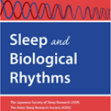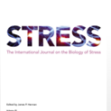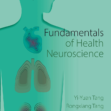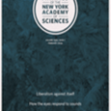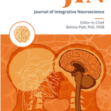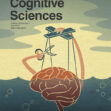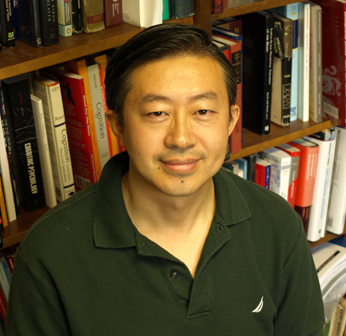 Yi-Yuan (一源, One-Source in Chinese). Prof. Tang is a neuroscientist and psychologist, his research covers the topics in cognitive, affective, social, cultural, developmental, educational and health psychology and neuroscience , body-mind medicine, prevention science, learning sciences and neuroscience of leadership. In his basic and translational research, he uses multilevel methodologies such as neuroimaging and modeling (e.g., fMRI, EEG/MEG, PET/SPECT), physiological (e.g., cortisol, sIgA, heart rate variability), interventional (e.g. mindfulness meditation, attention training, neurofeedback, brain stimulation, exercise), psychosocial and genetic methods to understand the effects and mechanisms of evidence-based prevention and intervention on improving brain functioning, behavior, health and well-being. For example, his basic research focuses on how environment or experience (e.g. stress, learning, training, culture) affects core mental processes (e.g. attention, self-control, emotion regulation, stress resilience, creativity and problem solving, decision-making) related to health and well-being, as well as conscious and unconscious changes in healthy behavior, habit and lifestyles; his translational research focuses on the evidence-based intervention programs to prevent and ameliorate behavioral problems and mental disorders such as ADHD, learning disabilities, substance use, mood disorders and stress related disorders across the lifespan.
Yi-Yuan (一源, One-Source in Chinese). Prof. Tang is a neuroscientist and psychologist, his research covers the topics in cognitive, affective, social, cultural, developmental, educational and health psychology and neuroscience , body-mind medicine, prevention science, learning sciences and neuroscience of leadership. In his basic and translational research, he uses multilevel methodologies such as neuroimaging and modeling (e.g., fMRI, EEG/MEG, PET/SPECT), physiological (e.g., cortisol, sIgA, heart rate variability), interventional (e.g. mindfulness meditation, attention training, neurofeedback, brain stimulation, exercise), psychosocial and genetic methods to understand the effects and mechanisms of evidence-based prevention and intervention on improving brain functioning, behavior, health and well-being. For example, his basic research focuses on how environment or experience (e.g. stress, learning, training, culture) affects core mental processes (e.g. attention, self-control, emotion regulation, stress resilience, creativity and problem solving, decision-making) related to health and well-being, as well as conscious and unconscious changes in healthy behavior, habit and lifestyles; his translational research focuses on the evidence-based intervention programs to prevent and ameliorate behavioral problems and mental disorders such as ADHD, learning disabilities, substance use, mood disorders and stress related disorders across the lifespan.
Prof. Tang has been a faculty member at the universities since 1987. He was a tenured Full Professor and Founding Director/Director of the first Institute of Neuroinformatics and Laboratory of Body and Mind in China. He was also the adjunct professor at the Center for Social & Organizational Behavior, the adjunct professor at Key Laboratory for Mental Health, the Chinese Academy of Sciences and the adjunct professor in neurology in a top hospital. Dr. Tang moved to the University of Oregon, USA as a research professor working with Dr. Michael Posner on training attention and self-regulation in 2007. He was the Presidential Endowed Chair in Neuroscience and tenured Full Professor at Department of Psychological Sciences and Internal Medicine from 2011 to 2021 at Texas Tech University, USA. He is now a tenured Full Professor in the College of Health Solutions at Arizona State University.
Prof. Tang has been internationally known in the use of brain imaging to examine brain connectivity in cognitive tasks and found cultures shape math processing in the brain(Tang et al., PNAS, 2006), and his series of research in mindfulness mechanism and application (Tang et al., Nature Reviews Neuroscience, 2015, 2016). Prof. Tang developed the Integrative Body-Mind Training (IBMT®) in the 1990’s and studied its effects. His research indicated that IBMT® is an easy, effective way for improvement in self-regulation in cognition, emotion and social behavior within 5 sessions of training (Tang et al., PNAS, 2007). IBMT® improves attention and self-regulation by changing the interaction between the central (brain) and the autonomic (body) systems as indexed by ACC theta power and high frequency HRV correlation (Tang et al., PNAS, 2009). About 5-10 hours of IBMT® induces white matter changes in the brain self-control networks (Tang et al., PNAS, 2010, 2012). Thus, IBMT® could provide a means for improving self-regulation and perhaps reducing or preventing various mental disorders. For example, brief IBMT® can reduce smoking to 60% and decrease craving (Tang et al., PNAS, 2013; Tang et al., TICS, 2015). Prof. Tang proposed two types of training techniques – state training such as IBMT® and network training such as computerized working memory program (Tang et al., TICS, 2012, 2014). Based on a series of RCTs, Prof. Tang proposed IBMT mechanisms by central-autonomic nervous system interaction through Bodifulness and Mindfulness during IBMT (Tang, 2011; 2017; Tang et al., 2019).
Prof. Tang is an APS Fellow (Association for Psychological Science) and APA Fellow (American Psychological Association). He received New Century Excellent Talents Awards from Ministry of Education, Distinguished Teaching Awards and Mentor Award for Graduates. He has published 8 books and over 300 peer-reviewed articles including Nature Reviews Neuroscience, Proceedings of the National Academy of Sciences (PNAS), Trends in Cognitive Sciences, Current Opinions in Psychology, Neuroimage, Human Brain Mapping, Progress in Brain Research, Annals of the New York Academy of Sciences, Child Development Perspectives, Brain Research, PLOS Medicine, Translational Behavioral Medicine, Neurocomputing, Neural Networks, Neuroscience Letters, Experimental Neurology, Cognitive, Affective, & Behavioral Neuroscience, Life Science, Psychiatry Research, Stress and Health, Physica A, NeuroReport. These findings are reported in the scientific journals including Nature, Science, Nature Reviews Neuroscience, Neuron, TICS, PNAS, etc., and popular media including TIME, New York Times, BBC, NPR, ScienceDaily, The Press Association, Reuters, etc. His PNAS paper (Tang et al., 2007) on attention and self-regulation has been cited over 1500 times and his NRN paper (Tang et al., 2015) on brain mechanisms of attention control, emotion regulation and self-awareness has been cited over 1000 times.
Prof. Tang is the Associate Editor of Social Cognitive & Affective Neuroscience (SCAN). He proposed a new field – mindfulness neuroscience on SCAN Special Issue (Tang et al., 2012). He is the Editorial Board of Frontiers Journals, PloS One, Psychology of Consciousness. He also serves as reviewers for over 80 prestigious journals including Nature Reviews Neuroscience, Proceedings of the National Academy of Sciences, Trends in Cognitive Sciences, JAMA Psychiatry, Science Translational Medicine. His current research has received support from NIH, DoD and private Foundations.
Prof. Tang started eastern traditional practice and training when he was very young and learned different body-mind methods and techniques from more than 20 teachers and masters. He has been a long-term practitioner in ancient tradition and lineage including Traditional Chinese Medicine, meditation, Tai Chi, Qigong, martial arts and I Ching. He is the founder of the Integrative Body Mind Training (IBMT®) and has trained children and adults in Asia, USA and Europe to improve the attention, self-regulation, performance and relationship.
Published books by Prof. Tang
Tang YY. 2017. Brain Based Learning and Education: Principle and Application. Academic Press, Elsevier Purchase Link
Tang YY. 2017. The Neuroscience of Mindfulness Meditation: How the Body and Mind Work Together to Change Our Behaviour? Palgrave Macmillan, Nature Publishing Group Purchase Link Purchase Link (German Translation)
Tang YY, Tang R. 2020. The Neuroscience of Meditation: Understanding Individual Differences. Academic Press, Elsevier Purchase Link


